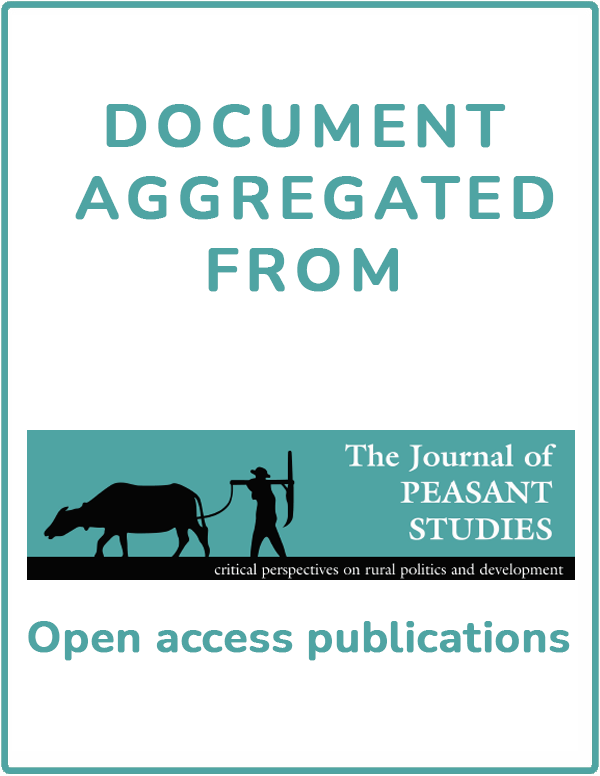Resource information
Land questions have invigorated agrarian studies and economic history, with particular emphases on its control, since Marx. Words such as ‘exclusion’, ‘alienation’, ‘expropriation’, ‘dispossession’, and ‘violence’ describe processes that animate land histories and those of resources, property rights, and territories created, extracted, produced, or protected on land. Primitive and on-going forms of accumulation, frontiers, enclosures, territories, grabs, and racializations have all been associated with mechanisms for land control. Agrarian environments have been transformed by processes of de-agrarianization, protected area establishment, urbanization, migration, land reform, resettlement, and re-peasantization. Even the classic agrarian question of how agriculture is influenced by capitalism has been reformulated multiple times at transformative conjunctures in the historical trajectories of these processes, reviving and producing new debates around the importance of land control.:The authors in this collection focus primarily on new frontiers of land control and their active creation. These frontiers are sites where authorities, sovereignties, rights, and hegemonies of the recent past have been challenged by new enclosures, property regimes, and territorializations, producing new ‘urban-agrarian-natured’ environments, comprised of new labor and production processes; new actors, subjects, and networks connecting them; and new legal and violent means of challenging previous land controls. Some cases augment analytic tools that had seemed to have timeless applicability with new frameworks, concepts, and theoretical tools.:What difference does land control make? These contributions to the debates demonstrate that the answers have been shaped by conflicts, contexts, histories, and agency, as land has been struggled over for livelihoods, revenue production, and power.

